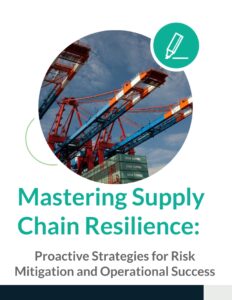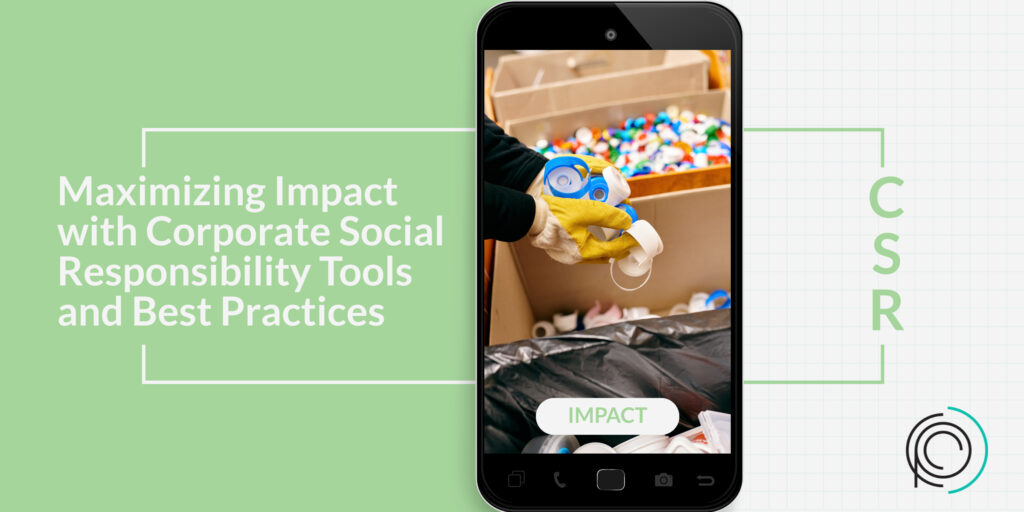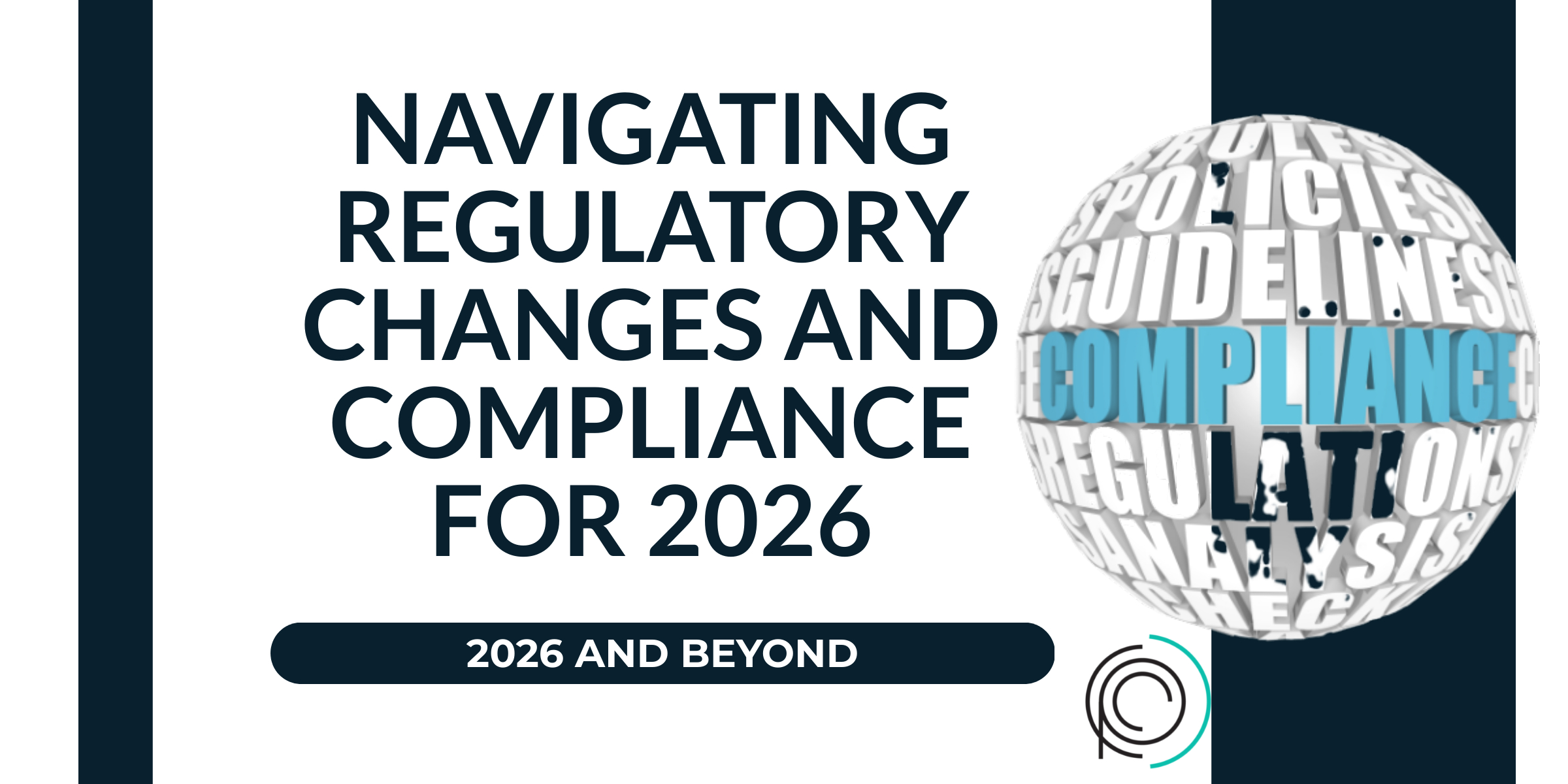Corporate social responsibility (CSR) has become an important element for companies seeking sustainable growth and a positive reputation. No longer just a checkbox on an annual report, Corporate Social Responsibility (CSR) now plays a pivotal role in shaping how businesses interact with their stakeholders, including customers, employees, and communities. Companies are increasingly recognizing that their actions have far-reaching impacts, and as a result, they are integrating CSR into their core strategies. This shift not only promotes ethical practices but also enhances brand loyalty and fosters a positive company image in a socially conscious market. This comprehensive guide provides decision-makers with essential tools and best practices to implement effective CSR initiatives that drive genuine impact.
Understanding the Importance of CSR
Why have Corporate Social Responsibility (CSR)? CSR is essential because it demonstrates a company’s commitment to ethical practices, social well-being, and environmental sustainability. By implementing CSR initiatives, businesses can foster positive relationships with their communities, enhance their reputation, and attract customers who value responsible practices. Additionally, a strong CSR strategy can lead to increased employee morale and loyalty, as workers take pride in being part of an organization that prioritizes social responsibility. Ultimately, CSR not only benefits society but also contributes to the long-term success and sustainability of the business itself.
Corporate social responsibility is not just about making charitable donations. It encompasses a wide range of activities that ensure a company operates ethically and contributes positively to society. From ethical labor practices to environmental stewardship, CSR initiatives demonstrate a company’s commitment to doing good while doing well.
Key Components of a Successful CSR Strategy
A robust Corporate Social Responsibility (CSR) strategy is grounded in a comprehensive understanding and proactive approach to addressing several key areas, including philanthropy, ethical labor practices, and community engagement.
Philanthropy involves not only supporting charitable causes but also developing long-term partnerships with nonprofit organizations to create a sustainable impact. This can include financial contributions, in-kind donations, and employee volunteer programs, all aimed at enhancing societal well-being and addressing pressing social issues.
Ethical labor practices are essential for ensuring fair treatment, safe working conditions, and respect for workers’ rights. This includes implementing policies that promote diversity and inclusion, providing training and development opportunities, and conducting regular audits to ensure compliance with labor standards. By fostering a positive workplace culture, companies can enhance employee satisfaction and retention.
Community engagement goes beyond mere presence; it involves actively fostering strong relationships with local stakeholders, including residents, businesses, and government entities. This can be achieved through initiatives such as community forums, collaborative projects, and investment in local development. By listening to community needs and feedback, organizations can tailor their CSR efforts to create meaningful and lasting change.
Integrating these elements into a CSR strategy enhances a company’s reputation while aligning its values with the expectations of its stakeholders. This alignment ultimately fosters a more sustainable and successful business model.
The Role of Philanthropy
Philanthropy is a fundamental pillar of Corporate Social Responsibility (CSR) initiatives. By backing causes that reflect their values, companies can create a meaningful impact. Successful philanthropic efforts are strategically aligned with business objectives and resonate with both employees and customers.
There are numerous ways for companies to engage in philanthropic activities. For example, monetary donations to educational institutions can fund scholarships for underprivileged students, while collaborations with healthcare organizations can enable free medical camps in underserved communities. Corporate sponsorships for environmental clean-up projects and wildlife conservation efforts also showcase a commitment to sustainability. Moreover, employee volunteer programs, which encourage staff to participate in community service during work hours, serve as another powerful form of philanthropy that promotes a culture of giving and social responsibility within the organization.
Incorporating individual philanthropic ideas into a company’s CSR strategy can amplify social impact and enhance employee engagement. Key initiatives may include matched-giving programs, skill-based volunteering, personalized volunteer time off, employee-led philanthropic committees, mentorship programs, and crowdfunding initiatives. These strategies support community causes and also cultivate a culture of giving and strengthen connections between employees and the communities they serve.
Technology Donations
Access to technology profoundly influences educational and professional opportunities for individuals and communities. Equipping people with the right tools is essential for success. Companies can make a significant impact by donating computer equipment, software licenses, and internet access to schools, community centers, and nonprofit organizations.
These contributions can help bridge the digital divide, ensuring that underserved populations have equal access to technology, and also empower individuals with the resources necessary to thrive. By offering these tools, companies empower students to complete assignments, acquire new skills, and explore career pathways that may have once seemed unattainable. Additionally, these donations contribute to environmental sustainability by reducing the amount of electronic waste that ends up in landfills, promoting a more responsible and eco-friendly approach to technology usage. Investing in technology donations not only transforms lives but also fosters a sense of community and corporate social responsibility.
Disaster Relief Support
We have all seen the effects of natural and accidental disasters across the globe. In times of crisis, timely assistance can be life-saving. Another effective way for businesses to give back is by creating a disaster relief fund or collaborating with emergency response organizations. This enables them to provide financial support, essential supplies, and logistical assistance to areas impacted by natural disasters. This swift response not only aids in immediate relief efforts but also supports long-term recovery and rehabilitation, demonstrating a company’s commitment to global humanitarian causes.
Leveraging Technology for CSR
Technology has revolutionized the way companies approach Corporate Social Responsibility (CSR). The advent of Environmental, Social, and Governance (ESG) software, for instance, has transformed the management and reporting of CSR initiatives, ensuring greater efficiency, accountability, and transparency in these efforts. By utilizing advanced technology, organizations can now align their business goals with social and environmental objectives, making a positive impact on society while enhancing their brand reputation.
ESG Software for Streamlined Management
ESG software simplifies the complex task of managing various CSR activities by providing a centralized platform for tracking, measuring, and reporting. This technology enables companies to monitor their environmental impact, track social initiatives, and ensure governance compliance seamlessly. With features like automated data collection and customizable dashboards, businesses can keep a close eye on their progress and easily share their achievements with stakeholders. This not only enhances operational efficiency but also builds trust with customers, investors, and the community at large.
Real-Time Data and Analytics
Access to real-time data and analytics allows companies to make informed decisions about their CSR strategies. By leveraging robust data analytics tools, businesses can identify areas for improvement, measure the success of initiatives, and adjust their approach based on actionable insights. For example, a company might use data to assess the impact of its sustainability programs, determining which initiatives yield the best results. This agility enables organizations to remain responsive to changing social expectations and environmental challenges, ensuring that their CSR efforts are both relevant and effective.
Monitoring Compliance and Risk Management
ESG software also plays a critical role in monitoring compliance with regulatory requirements and managing risks associated with CSR initiatives. As regulations surrounding corporate sustainability continue to evolve, it is vital for companies to stay ahead of compliance obligations. ESG software can automate this process, ensuring that companies remain accountable and mitigate potential reputational risks. Furthermore, by identifying and addressing risks early on, businesses can protect themselves from legal repercussions and enhance their overall corporate governance, ultimately leading to long-term success and sustainability in their CSR endeavors.
Collaborating with Stakeholders
Effective Corporate Social Responsibility (CSR) initiatives are often the result of collaboration with various stakeholders, including non-governmental organizations (NGOs), government bodies, and community organizations. These partnerships can significantly enhance the impact and reach of CSR efforts, ensuring that they are not only well-informed but also resonate with the needs and expectations of the wider community. By working together, organizations can create synergies that lead to innovative solutions and more robust outcomes.
Building Strong Partnerships with NGOs
Non-governmental organizations bring invaluable expertise, extensive networks, and credibility to CSR initiatives. Collaborating with NGOs allows companies to tap into specialized knowledge and resources that can make their efforts more effective and impactful. For instance, NGOs often have a deep understanding of local issues and can provide insights into the specific challenges faced by communities. This collaboration can take various forms, such as joint projects, funding initiatives, or knowledge-sharing workshops, which all contribute to fostering a more sustainable business model.
Government Partnerships for Greater Impact
Government bodies can offer crucial support and guidance for CSR initiatives through policies, incentives, and public-private partnerships. By working with government entities, companies can ensure their CSR efforts align with national priorities, thus enhancing the legitimacy and visibility of their initiatives. Furthermore, such partnerships can open doors to additional funding opportunities and resources, allowing companies to scale their projects and reach a wider audience. Engaging in dialogue with government officials can also help businesses stay informed about regulatory changes and emerging social issues, allowing them to adapt their strategies accordingly.
Collaborating with Educational Institutions
Collaborating with educational institutions such as universities, colleges, and research centers can provide businesses with unique opportunities to enhance their CSR initiatives. These partnerships enable companies to support education and innovation, addressing societal challenges through academic research and community outreach programs. For example, a business might sponsor a research grant focused on environmental sustainability, resulting in cutting-edge solutions that benefit both the industry and society. Additionally, by participating in mentorship programs or offering internships, companies can help develop the next generation of leaders and professionals, contributing to workforce development and economic growth. This approach not only bolsters a company’s social impact but also fosters a culture of continuous learning and innovation, which can be crucial for long-term success.
Measuring CSR Impact
To ensure the effectiveness of CSR initiatives, it is crucial to measure and report on their impact. Key performance indicators (KPIs) and transparent reporting practices provide insights into the success and areas for improvement of CSR efforts.
Identifying Relevant KPIs
Relevant KPIs vary depending on the nature of the CSR initiative. Common indicators include carbon footprint reduction, employee volunteer hours, and community investment. Identifying the right KPIs ensures that companies can track progress and demonstrate tangible results.
Transparent Reporting Practices
Transparent reporting builds trust and accountability. Companies should regularly publish CSR reports that detail their initiatives, achievements, and challenges. This openness fosters credibility with stakeholders and the public.
Using Feedback for Continuous Improvement
Feedback from stakeholders is invaluable for refining CSR strategies. Companies should actively seek input from employees, customers, and community members to identify strengths and areas for improvement, ensuring ongoing enhancement of their CSR efforts.
Enhancing Employee Engagement
CSR initiatives can significantly boost employee morale and engagement. Employees who feel that their company is making a positive difference are more likely to be motivated and committed to their work.
Creating a Positive Workplace Culture
A strong CSR program contributes to a positive workplace culture by promoting values such as integrity, empathy, and social responsibility. This culture fosters a sense of pride and belonging among employees.
Encouraging Employee Participation
Involving employees in CSR initiatives improves engagement and satisfaction. Companies can offer volunteer opportunities, encourage participation in community events, and create employee-led CSR committees to foster a sense of ownership and contribution.
Recognizing and Rewarding Contributions
Acknowledging and rewarding employees’ contributions to CSR efforts reinforces their commitment. Recognition programs, awards, and incentives can motivate employees to actively participate in CSR activities.
Building a Positive Reputation
A well-executed Corporate Social Responsibility (CSR) strategy significantly enhances a company’s reputation in today’s competitive market. Businesses known for their unwavering commitment to social responsibility not only attract customers but also draw in investors and talented individuals who share similar values and ethics. This alignment is crucial in fostering long-term relationships and loyalty among stakeholders.
Attracting Ethical Consumers
Today’s consumers are increasingly conscientious about the ethical practices of the companies they choose to support. They seek transparency and authenticity, valuing brands that demonstrate a commitment to social and environmental responsibility. A strong CSR reputation can effectively attract ethically-minded customers who prioritize doing business with companies that align with their values, resulting in a loyal customer base that advocates for the brand and its principles.
Appealing to Investors
Investors are also placing greater emphasis on CSR performance as part of their decision-making process. Companies with robust CSR programs are perceived as less risky and more sustainable investments, making them attractive to socially responsible investors who consider ethical implications alongside financial returns. A solid CSR strategy can enhance a company’s appeal in the eyes of investors, leading to increased funding opportunities and a more favorable market position.
Recruiting Top Talent
In previous articles, we have broken down the changing consumer behavior. The same principles apply to attracting top talent. A positive CSR reputation can be instrumental in attracting top talent in today’s job market. Skilled professionals are increasingly looking for employers who share their commitment to making a difference in the world, whether through social initiatives, environmental stewardship, or community engagement. Companies that prioritize CSR often find it easier to recruit and retain skilled employees, fostering a workplace culture that values purpose and impact. This not only enhances employee satisfaction and retention rates but also contributes to a more motivated and productive workforce dedicated to achieving the company’s goals.
Conclusion
Effective CSR initiatives demand a strategic approach, the right tools, and stakeholder collaboration. By leveraging technology, setting clear goals, and engaging employees and the community, companies can create a meaningful impact and enhance their reputation. Decision-makers should view CSR not just as a responsibility, but as an opportunity to generate lasting value for both business and society. Start your CSR journey today and discover how a tailored roadmap can help make a difference.







